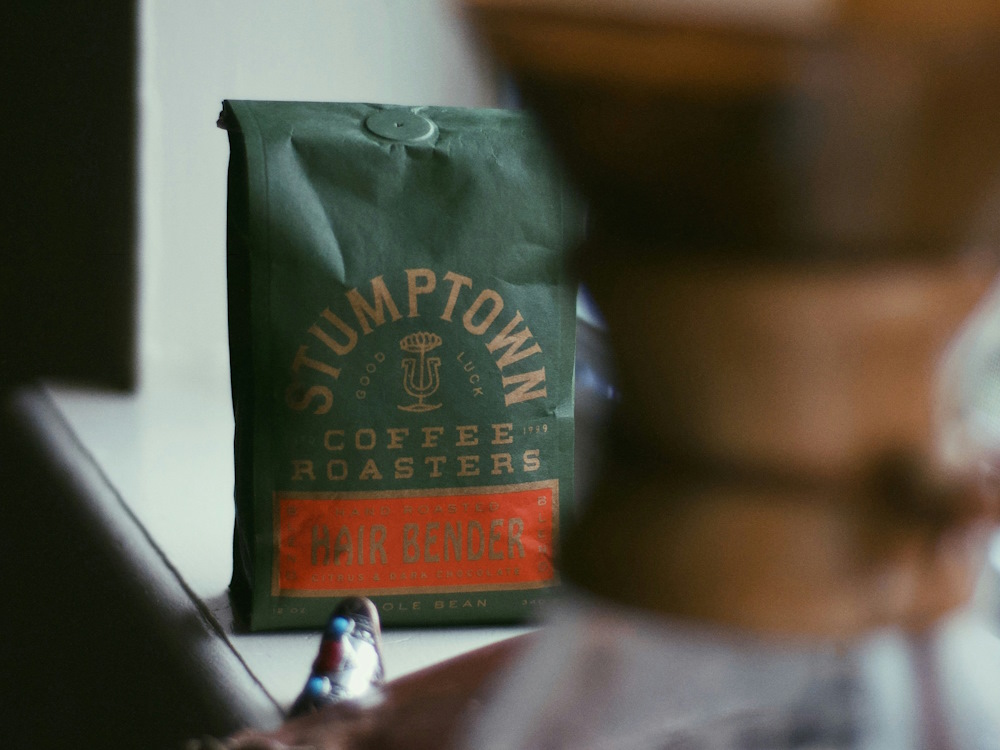In October 2024, the US’ pioneering Stumptown Coffee Roasters celebrated its 25th anniversary, hosting a series of events at its flagship café in Portland, Oregon. As one of the world’s first third wave roasters, the company has had a huge impact on specialty coffee market trends and influenced many other brands to follow in its footsteps.
Looking more broadly, the roaster’s milestone anniversary means that specialty coffee has also turned 25. It’s clear how far the industry has evolved over the last two decades, transforming from a niche subculture within the wider coffee market to a more accessible product available to the masses.
Stumptown’s journey as an industry innovator has been emblematic of this growth. Acquired by JAB Holdings in 2015, the roaster leveraged JAB’s vast retail distribution channels to expand its reach across the US and scale production of its popular RTD cold brew and oat milk drinks.
In the ensuing years, more multinationals have noticed the value of smaller specialty coffee brands, and acquisitions have become commonplace – spurring rapid growth of the market.
To reflect on how much specialty coffee has changed over the last 25 years and what lies ahead for the industry, I spoke to Laila Ghambari, owner of Guilder Café and Juniors Roasted Coffee, and Miranda Caldwell, founder of The Coffee MBA.
You may also like our article on how specialty coffee is leading consumption in the US.
Stumptown celebrates 25 years: Reflecting the growth of specialty coffee
The name Stumptown is synonymous with the birth of third wave coffee. Founded in 1999 by Duane Sorenson, the roaster set a precedent for many of the sourcing and buying practices used today in specialty coffee. As far back as the early 2000s, Sorenson and his team visited coffee farms and paid above-market prices for higher-quality coffee, helping to establish direct trade practices.
Stumptown was also part of the groundbreaking 2004 Best of Panama auction. Along with other industry heavyweights – with a new world record of over US $13,500/kg.
Laila Ghambari is a US Barista Champion and coffee consultant with 20 years of experience in the industry and owns Guilder Café and Juniors Roasted Coffee in Portland, Oregon.
“A lot of the direct trade practices pioneered by Intelligentsia and Stumptown are now the norm,” she says. “You can see Stumptown’s influence on the industry everywhere.”
Established in the vibrant and unconventional city of Portland, the roaster’s initial focus on artisanry and individuality reflected its hometown and was distinct from its competitors, helping to establish its presence in the industry.
In the years that followed, interest in third wave coffee boomed, and Stumptown was positioned at the forefront of the growing movement, along with other iconic US roasters such as Intelligentsia, Counter Culture, and Blue Bottle.
As the market matured, Stumptown continued to shape trends
Although the specialty coffee market is still relatively young, the industry has grown at a remarkable rate over the past two decades, and Stumptown’s journey has reflected these key changes.
Miranda Caldwell founded The Coffee MBA business education platform in 2022. She has also worked for several prominent US roasters, including Verve, Counter Culture, and Madcap, and has over two decades of experience in the coffee industry.
“In the last 25 years, the industry has grown up because it had to. A lot of people started in the industry as sort of ‘scrappy’ and passionate artists, which is what Stumptown reminds me of,” she says. “But they had to become more business savvy to stay profitable.”
Certain factors have undoubtedly contributed to the industry’s maturation, such as rising business costs, challenging economic conditions (including the Covid-19 pandemic), increasing responsibilities for staff and clients, and a desire to grow business operations.
“Specialty coffee has scaled to such a wide audience, and consumer demand is so much bigger than it was 25 years ago,” Miranda tells me. “We’ve had to scale our efforts, change the way we do business, and think about economies of scale.”
In the mid-2010s, larger companies saw an opportunity to capitalise on this. A few years after launching its successful bottled cold brew products, Stumptown was bought by conglomerate JAB Holdings, which also owns Peet’s and Caribou Coffee.
Some were dismayed by the acquisition, claiming that it starkly contrasted Stumptown’s core values of quality and authenticity. Ultimately, the move helped the roaster to leverage JAB’s retail distribution network to sell its RTD products in grocery retailers and supermarkets across the US – undoubtedly spurring the boom in cold coffee sales and driving wider growth of the specialty coffee market.

Has specialty coffee become more corporate?
Stumptown’s acquisition sparked a wave of wider market consolidation in the mid-2010s. Noticing the value in the rapidly growing specialty coffee segment, larger players saw an opportunity to increase and diversify their market share by absorbing well-established third wave roasters with a solid brand identity.
JAB Holdings also acquired Intelligentsia, while Nestlé purchased a 70% stake in Blue Bottle. Most recently, US Greek yoghurt brand Chobani bought La Colombe for US $900 million.
As part of the growing trend of acquisitions, some question whether it dilutes and corporatises the fundamental values of specialty coffee. In contrast, others argue it helps brands scale quality more effectively, which supports further growth of the industry.
“Becoming more mainstream is emblematic of change in the wider industry,” Miranda says. “ Stumptown becoming more corporate was inevitable with its acquisition, and I think that it reflects specialty coffee culture as a whole, but I don’t think it’s necessarily negative. Ideally, it means there are stronger business practices that are more profitable.”
As they have matured, third-wave coffee roasters have shifted their priorities from novelty and experimentation to consistency and dependability, catering to a much broader audience of consumers.
“Specialty coffee is maturing; it is now mainstream. The puristic approach and minimalist menus have gone out of fashion more recently,” Laila says. “It used to be taboo to have syrups and now signature drinks have taken over. But brand is still everything, that has not changed.”
With recent challenging economic conditions, this shift is having more influence over younger specialty coffee businesses. In late October 2024, Kansas City’s FairWave Specialty Coffee Collective acquired its 12th brand, helping independent companies achieve economies of scale which wouldn’t be possible without consolidation.
Why consolidation is a part of specialty coffee’s future
It’s evident that newer specialty coffee roasters are learning from their predecessors and focusing more on sustainable growth rather than being willing to take risks.
“Consolidation is a smart and necessary move at some point. Having support from larger businesses that already have the experience, talent, equipment, and money can save a business a lot of time, money, and struggle,” Laila says. “You trade one thing for another. I look at companies like FairWave taking costly resources like HR and marketing and sharing them across multiple brands as a positive way for brands who want to remain in control but need the support as they scale.”
If specialty coffee businesses want to significantly expand their reach, acquisitions are an inevitable part of their future.
“For us to meet consumer demand, we have to be able to do this at scale,” Miranda says. “One of the best ways to do that is to consolidate our efforts, but that still leaves space for small, local, niche companies to exist, and I hope to see the full range of these companies existing well into the future.”

The journey of Stumptown reflects changes in the wider specialty coffee industry. Established as a “counter-culture” third wave roaster that wanted to do things “differently”, the company has since transformed to become more mainstream and appeal to the masses.
Specialty coffee is also moving in this direction. As consumption reaches record levels in mature markets, more brands are finding opportunities to capitalise on rising consumer demand and scale their operations.
Consolidation is playing a key role in this. But whether it stifles growth for smaller brands or helps drive innovation remains to be seen.
Enjoyed this? Then read our article on whether Stumptown’s partnership with Alaska Airlines is a sign that specialty coffee is more mainstream.
Perfect Daily Grind
Want to read more articles like this? Sign up for our newsletter!
The post As Stumptown turns 25, it’s time to reflect – how has specialty coffee really changed? appeared first on Perfect Daily Grind.

